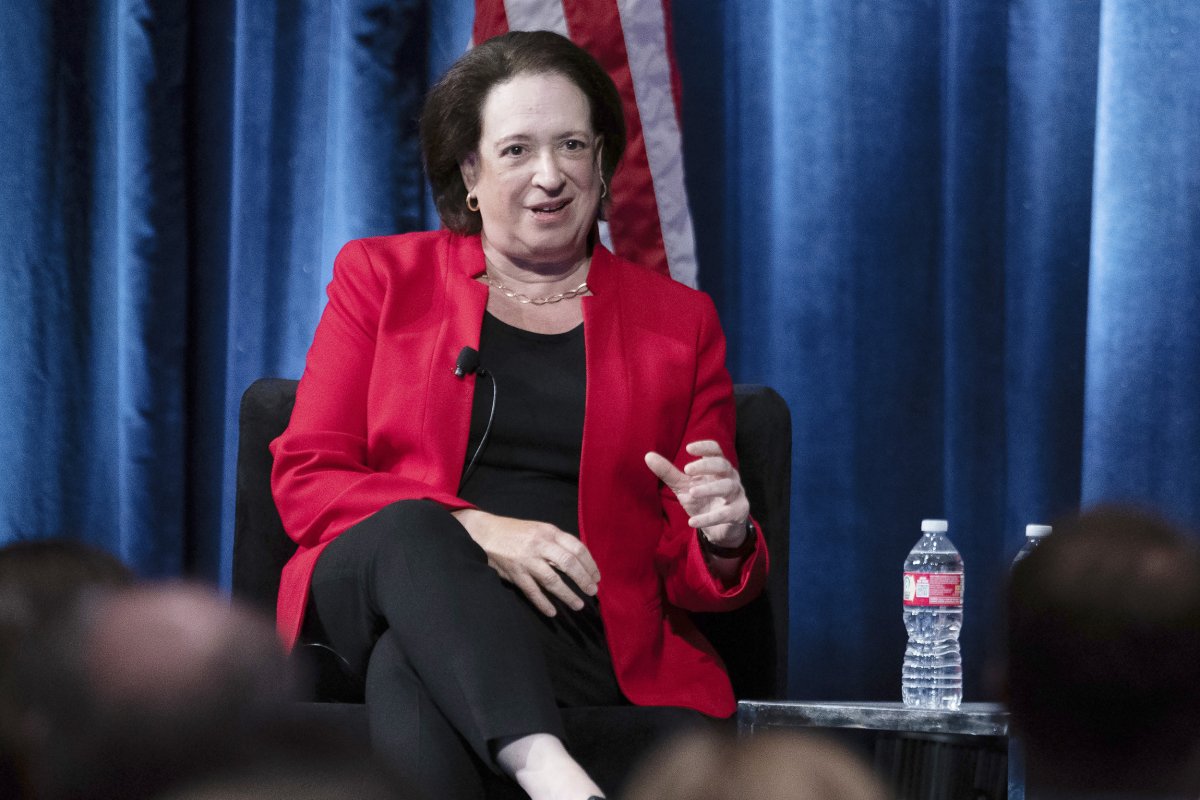Justice Kagan says Supreme Court "wrong" on text, history and precedent
Supreme Court Justice Elena Kagan said the majority was "wrong" on matters of text, history and precedent in a dissent published Friday.
The Court ruled that courts are not bound to the Federal Communications Commission's (FCC) interpretation of the Telephone Consumer Protection Act (TCPA), which protects businesses and consumers from intrusive telemarketing by prohibiting unsolicited fax advertisements to "telephone facsimile machines."
In the 6-3 ruling, liberal Justices Kagan, Sonia Sotomayor and Ketanji Brown Jackson dissented.
Why It MattersThe Supreme Court's decision could determine the role of FCC rulings in future judicial proceedings.
In 2009 and 2010, a subsidiary of health care company McKesson Corporation sent unsolicited fax advertisements to various medical practices, including McLaughlin Chiropractic Associates. McLaughlin sued McKesson in 2014, alleging violations of the TCPA without the notice to opt out required under the statute.
In a class-action lawsuit against McKesson, led by McLaughlin, the district court did not distinguish between advertisements received on traditional fax machines and those received through online fax services.
A third party with no connection to the litigation petitioned the FCC for a ruling on whether the TCPA applies to online fax services. The FCC ruled that "an online fax service is not a 'telephone facsimile machine.'"
The U.S. District Court for the Northern District of California ruled against McLaughlin on claims involving online fax services following the FCC's ruling. The Supreme Court, however, ruled that the FCC's decision did not bind the district court and was instead required to interpret the statute independently.
What To KnowJustice Brett Kavanaugh, who delivered the Court's majority opinion, warned that ruling in favor of McKesson and the FCC would require district courts to show "absolute deference" to the agency.
He said the Court sees "no good rationale" for embodying that position on the Hobbs Act, a 1950 law that allows for a court of appeals to review FCC orders.
"As McKesson and the Government see things, when the initial window for pre-enforcement review closes, no one can argue in court that the agency's interpretation of a statute is incorrect—no matter how wrong the agency's interpretation might be," Kavanagh wrote.
Kagan disagreed.
"The majority today is wrong as a matter of text: The Hobbs Act gives the courts of appeals exclusive jurisdiction to determine the validity of agency action, meaning that district courts have no jurisdiction to do so," Kagan said in her dissent.
Kagan said the majority is also "wrong as a matter of history" and "wrong as a matter of precedent" concerning the Hobbs Act.
"There is simply nothing in the law to support today's result," Kagan said.
Kagan argued that the Court's interpretation of the law prevents it from serving its "intended function."
"Today's holding undermines the certainty and finality Congress sought in designing a mechanism for judicial review; it subjects all administrative schemes, and the many businesses and individuals relying on them, to the ever-present risk of disruption," Kagan said.
 U.S. Supreme Court Justice Elena Kagan sits on a panel at the Ninth Circuit Judicial Conference in Sacramento, California, on July 25, 2024.
U.S. Supreme Court Justice Elena Kagan sits on a panel at the Ninth Circuit Judicial Conference in Sacramento, California, on July 25, 2024.
AP Photo/Rich Pedroncelli
What People Are Saying
U.S. Supreme Court Justice Elena Kagan sits on a panel at the Ninth Circuit Judicial Conference in Sacramento, California, on July 25, 2024.
U.S. Supreme Court Justice Elena Kagan sits on a panel at the Ninth Circuit Judicial Conference in Sacramento, California, on July 25, 2024.
AP Photo/Rich Pedroncelli
What People Are SayingSupreme Court Justice Brett Kavanaugh, in the majority opinion: "The Hobbs Act dictates how, when, and in what court a party can challenge a new agency order before enforcement. The Act does not purport to address, much less preclude, district court review in enforcement proceedings."
Supreme Court Justice Elena Kagan, in a dissent: "The majority today is wrong as a matter of precedent: This Court has held that the Hobbs Act, like its precursors, sets up a single judicial review mechanism for agency rules and orders, and prevents later collateral attacks on them in other courts."
What Happens NextThe Supreme Court's decision reversed the ruling made by the Ninth Circuit Court of Appeals and remanded the case for further proceedings consistent with this opinion.
Do you have a story that Newsweek should be covering? Do you have any questions about this story? Contact LiveNews@newsweek.com.